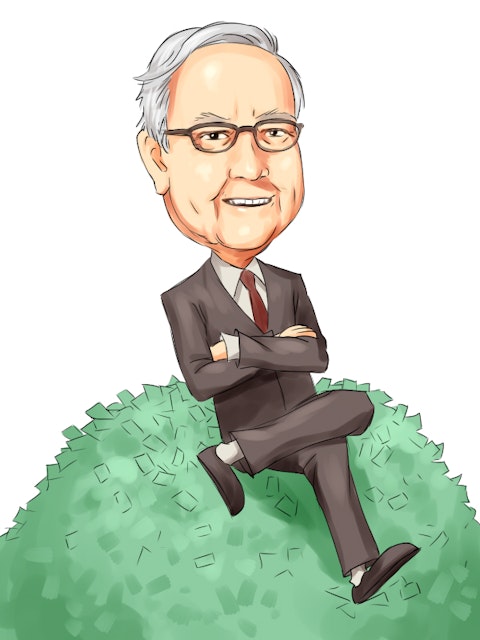Warren Buffett made a big and unexpected move in 2011, when he decided to take a big position in International Business Machines Corp. (NYSE:IBM) and make the IT company one of Berkshire Hathaway Inc. (NYSE:BRK-B) “big four” holdings alongside names like The Coca-Cola Company (NYSE:KO), Wells Fargo & Co (NYSE:WFC) and American Express Company (NYSE:AXP).

Capital Allocation
In his 2012 letter to shareholders, Warren Buffett recommends the book The Outsiders, by William Thorndike, described by the Oracle as “an outstanding book about CEOs who excelled at capital allocation.”
Berkshire Hathaway Inc. (NYSE:BRK-B) is one of the companies profiled in the book, which comes as no surprise considering that Buffett is one of the best capital allocators in corporate history. Buffett didn´t achieve his amazing success by running a specific business in a certain industry, his big talent is capital allocation, and that´s what makes Berkshire so special.
The insurance business is at the core of Berkshire Hathaway Inc. (NYSE:BRK-B)´s business model, not only because it brings in a big proportion of earnings but, more importantly, because it generates low cost float which Buffett allocates in different investments with attractive risk and return profiles. In a nutshell, what Buffett does with Berkshire is raising cheap capital and putting it to work in high quality investment opportunities, capital allocation at its best.
When a company has surplus cash, and the stock price is attractive enough to merit that decision, investing in its own stock via buybacks may be the right thing to do in terms of efficient capital allocation.
That´s why Buffett has established a simple and smart buyback policy for Berkshire Hathaway Inc. (NYSE:BRK-B): the company will repurchase stock provided it has more than $20 billion in cash at hand and the stock is trading at an attractive valuation, which Buffett has defined as a price to book value ratio below 1.2.
IBM
In Berkshire Hathaway Inc. (NYSE:BRK-B)´s 2011 letter to shareholders, Buffett explains that capital allocation has been a major consideration behind the decision to invest in IBM. The Oracle praises CEOs Lou Gerstner and Sam Palmisano for their operational skills, transforming IBM from a decaying company to a major global IT player, and he then focuses on capital allocation:
“I can think of no major company that has had better financial management, a skill that has materially increased the gains enjoyed by IBM.”
IBM puts profitability and cash flow generation above sales growth, it´s not about size but about generating value for shareholders. Since 1995, the company has reduced its share count by almost 50%; this means that the pie is sliced in fewer pieces, so each piece is worth much more.

The company announced in April a 12% dividend hike and a 5 billion increase to its share repurchase program, boosting the company’s total authorization to $11.2 billion. Generous capital distributions are not only a healthy tradition at IBM, but an active policy with strong implications for investors in the middle term.
Here is where things become quite interesting: the cheaper the stock price, the more shares the company can repurchase with a determined amount of money. The long-term investor benefits from lackluster stock returns in the short term because this means that the company gets to repurchase a bigger amount of stock at convenient prices.
In his 2011 letter to shareholders, Buffett explains this idea in all clarity, using precisely IBM as an example:
Naturally, what happens to the company’s earnings over the next five years is of enormous importance to us. Beyond that, the company will likely spend $50 billion or so in those years to repurchase shares. Our quiz for the day: What should a long-term shareholder, such as Berkshire, cheer for during that period?
I won’t keep you in suspense. We should wish for IBM’s stock price to languish throughout the five years.
The logic is simple: If you are going to be a net buyer of stocks in the future, either directly with your own money or indirectly (through your ownership of a company that is repurchasing shares), you are hurt when stocks rise. You benefit when stocks swoon.
Bottom Line
When a company like IBM has a big and active buyback program, a languishing stock price means that the company gets to buy a bigger amount of stock for every dollar invested in the repurchase, and this ultimately means higher returns for investors in the long term. That´s why Warren Buffett must be quite happy with a stagnant stock price for IBM in the last year.
Andrés Cardenal owns shares of IBM and Berkshire Hathaway. The Motley Fool recommends Berkshire Hathaway. The Motley Fool owns shares of Berkshire Hathaway and International Business Machines..




